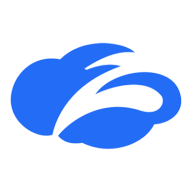

Azure Kubernetes Service (AKS) and Zscaler Workload Communications compete in cloud management solutions. Based on data comparisons, AKS offers more comprehensive features, while Zscaler leads in deployment capabilities due to its strong security focus.
Features: AKS is known for its scalability, seamless integration with Azure tools, and effective Kubernetes cluster management, allowing smooth container orchestration and secure resource management. Zscaler Workload Communications focuses on secure cloud communications, offering network security, micro-segmentation, and zero-trust principles that are crucial for secure multi-platform workload connectivity.
Ease of Deployment and Customer Service: AKS leverages Azure integration for straightforward deployment, particularly attractive to Azure users, and is supported by robust customer service ensuring a smooth setup process. Zscaler benefits from a cloud-native service model for deployment, requiring minimal changes to existing infrastructure, but its customer service lacks the depth compared to AKS's extensive resources, which can impact support efficiency.
Pricing and ROI: AKS offers an appealing cost advantage with lower initial setup costs, making it a cost-effective choice for companies leveraging Azure services, delivering a favorable ROI. Zscaler adopts a premium pricing strategy, offering substantial ROI through its advanced security features, suited for businesses prioritizing secure workload communication despite a higher initial investment.
| Product | Market Share (%) |
|---|---|
| Azure Kubernetes Service (AKS) | 0.9% |
| Zscaler Workload Communications | 0.3% |
| Other | 98.8% |

| Company Size | Count |
|---|---|
| Small Business | 15 |
| Midsize Enterprise | 7 |
| Large Enterprise | 22 |
Azure Kubernetes Service (AKS) is a fully managed container orchestration service provided by Microsoft Azure. It simplifies the deployment, management, and scaling of containerized applications using Kubernetes. With AKS, developers can focus on building applications while Azure takes care of the underlying infrastructure. It offers features like automatic scaling, monitoring, and security, ensuring high availability and reliability. AKS integrates seamlessly with other Azure services, enabling easy integration with existing workflows. It also provides a flexible and open-source environment, allowing developers to use their preferred tools and frameworks. With AKS, organizations can accelerate their application development and deployment processes, while reducing operational overheads.
Zscaler Workload Communications enables secure application communication across hybrid and multi-cloud environments, streamlining operations and enhancing network security. It optimizes traffic management and ensures consistent security policies to protect workloads.
Zscaler Workload Communications provides a unified platform for application communication, targeting enhanced security and performance for multi-cloud infrastructures. By leveraging a zero-trust architecture, it minimizes the risk of cyber threats, offering seamless deployment and centralized policy management. This approach ensures reliable and secure data exchange between applications, reducing complexity and overhead in managing IT resources across dispersed environments. Designed for scalability, it supports businesses in maintaining robust security postures while embracing digital transformation.
What are the key features of Zscaler Workload Communications?In industries like finance and healthcare, Zscaler Workload Communications is implemented to address stringent compliance requirements and enhance system security. Its capabilities are particularly valued for ensuring secure data communication in environments requiring high assurance levels and regulatory adherence. Businesses in these sectors utilize its integration features to maintain uninterrupted operations while safeguarding sensitive information.
We monitor all Container Security reviews to prevent fraudulent reviews and keep review quality high. We do not post reviews by company employees or direct competitors. We validate each review for authenticity via cross-reference with LinkedIn, and personal follow-up with the reviewer when necessary.